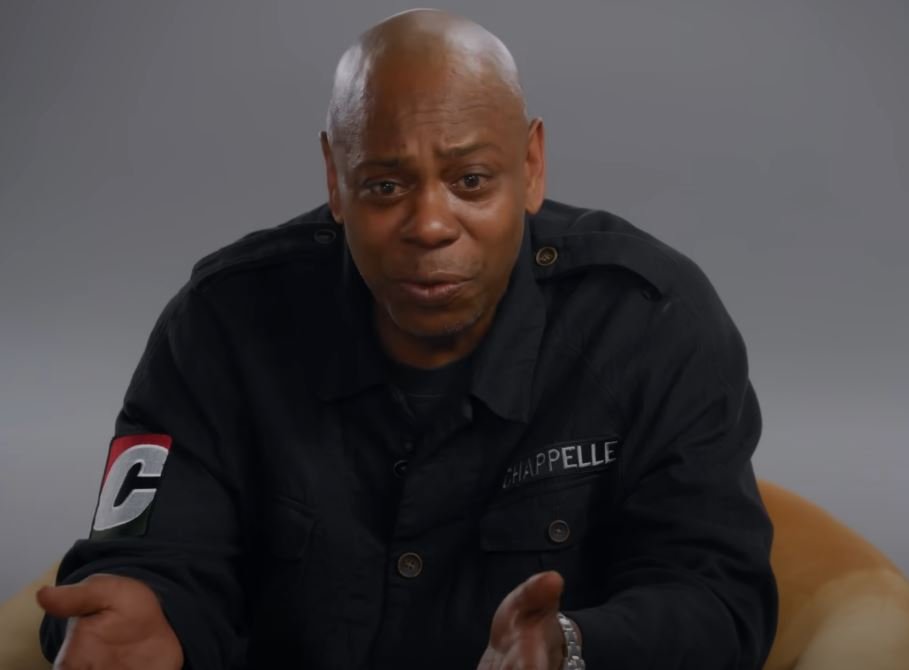
Not only does Dave Chappelle’s current $70 million net worth demonstrate his longevity, but it also reflects a life built on timing, discipline, and extraordinary intuition. Chappelle didn’t chase after every spotlight like many of his peers did. Rather, he stopped, refocused, and then took charge of his own stage, both financially and figuratively.
The media was perplexed when he resigned from Comedy Central’s $50 million contract in 2005. It seemed irrational to many. It was a strategic move for Chappelle. In the short term, his belief that the show was losing its integrity cost him dearly, but in the long run, it paid off handsomely. Frequently misinterpreted, that moment has come to represent the start of a new type of career. Chappelle has not only regained that lost fortune over the last ten years, but he has also created something much more robust.
Dave Chappelle – Personal and Financial Profile
| Attribute | Details |
|---|---|
| Full Name | David Khari Webber Chappelle |
| Date of Birth | August 24, 1973 |
| Age (as of 2025) | 51 years old |
| Birthplace | Washington, D.C., U.S. |
| Nationality | American |
| Profession | Comedian, Actor, Writer, Producer |
| Years Active | 1990–present |
| Known For | Chappelle’s Show, Netflix Specials, Stand-up Comedy |
| Net Worth (2025) | $70 Million |
| Income Sources | Netflix Deals, Stand-Up Tours, Film Roles, Business Investments |
| Notable Platforms | Netflix, HBO, YouTube, Comedy Central |
| Spouse | Elaine Mendoza Erfe (m. 2001) |
| Children | 3 (2 sons, 1 daughter) |
| Residence | Yellow Springs, Ohio |
| Religion | Islam (converted at 17) |
He received an unprecedented $60 million offer from Netflix in 2016 for three specials. The number was purposefully high, not just high. Netflix was aware that Chappelle was more than just another comedian making a comeback. He was a phenomenon, able to generate conversation and audience interest. From Equanimity to The Age of Spin, each of those specials conveyed a keen cultural pulse. He also added The Dreamer in 2023, which brought in an extra $20 million. These transactions alone make up the majority of his net worth.
Chappelle is remarkably good at managing his story, and he has always produced content that has a sense of direction. He’s not just a comedian making jokes about the news; he’s a commentator who doesn’t hesitate to analyze difficult realities. Despite being divisive, his special The Closer garnered international attention and sparked contentious debates about identity, cancel culture, and comedic boundaries. Chappelle maintained his position at the center of attention, whether it was positive or negative, and in the business world, that attention is valuable.
He has been very efficient financially. Despite living far from Hollywood in Yellow Springs, Ohio, Chappelle maintains a grounded lifestyle that drastically lowers overhead. He has established a comedy club in town, bought farmland, donated to schools, and reinvested in his neighborhood. These actions show a stronger dedication to independence than just charitable giving. He has ensured that his wealth isn’t diminished by needless diversions or exorbitant expenses by building from home.
Touring continues to be a crucial source of revenue for stand-up comedians. Chappelle continues to tour nonstop in spite of his notoriety. He maintains a connection with audiences while earning enormous sums of money from his residencies, which include 10-night runs at renowned venues like Radio City Music Hall. Instead of performing at stadiums, he prefers small venues where he can experiment with new material and maintain the energy of his work.
There has been a noticeable change in the comedy industry in recent years. While streaming has created saturation, it has also opened doors. Chappelle’s minimalist approach—less content, more impact—has worked especially well in this setting. Every appearance is a moment. Every special turns into a discussion. This scarcity-based strategy raises demand by raising anticipation.
With sparse, timely output and high-value contracts, Chappelle has created a model of sustainable creative wealth. He does not oversupply the market. He doesn’t release merchandise lines or podcasts every week. He instead concentrates on core output, or content that is still relevant years later. A back catalog with replay value and a public image that doesn’t feel overexposed are the outcomes.
Without weakening his brand, he has also increased its reach through strategic alliances. He stays adaptable without being overdone thanks to live performances and brief TV appearances with artists like Talib Kweli and Yasiin Bey. His recent performances on Broadway demonstrated that his stage presence isn’t limited to conventional comedy venues, demonstrating just how versatile his talent is.
The philosophical depth that Chappelle adds to his work is what distinguishes his comics from those that are financially successful. He frequently reminds audiences that “the goal is freedom, not money.” His decisions are obviously influenced by this motto. His early exit from Chappelle’s Show was a boundary rather than a breakdown. The foundation for his current level of autonomy was established by that boundary, which has been upheld over time.
